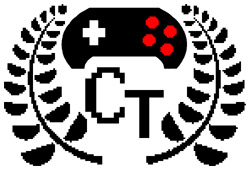Here is one way that we can look at teams, and the tendency of individuals to choose or fulfill different roles on a team.
A simplified but ideal example of teamwork roles is found in Maniac Mansion.
A parody of science fiction and B movies, Maniac Mansion follows the story of teenager Dave, and two of this friends who are attempting a daring rescue of Dave’s girlfriend Sandy. Sandy has been kidnapped by the stereotypical mad scientist, Dr. Fred who is under the control of a living meteor. The resulting adventure includes talking tentacles, a swimming pool filled with radioactive water, a mummified relative, and a hamster that explodes when microwaved (side note & bonus lesson: just because you can, it does not that you should.)
swimming pool filled with radioactive water, a mummified relative, and a hamster that explodes when microwaved (side note & bonus lesson: just because you can, it does not that you should.)
Working as a Team
Dr Meredith Belbin “a tendency to behave, contribute and interrelate with others in a particular way”
Just like in Maniac Mansion, knowing your team members’ strengths and weaknesses allows each individual to identify how they can best contribute.
It’s also important to consider what happens when all team members are of the same style – unbalance occurs. While the team may be exceptionally strong in one area, they will also have an equally grand vulnerability.
In Final Fantasy VI, the team of adventurers encounter the Fanatic’s Tower – a challenging location with great rewards. But there is a catch: the party can only use magic spells for offence attacking.
If they player has only been developing physical attack abilities up to the point, the tower will be a near impossibility. In the same way, if you rely exclusively on magic, you will find enemies that are invulnerable to spells, as well as the difficulty associated with depending on a resource that is finite.
In the workplace, teams that are too similar will spend more time competing for the work that is best suited to their style rather than co-operating.
Finding the Right Role
Dr. Belbin created three categories of nine team roles. It’s worth pointing out that all of the roles have both strengths and weaknesses. The goal is not to remove individual weakness, but to overcome individual weakness by combining group strengths. The three mail categories are: Action Oriented, People Oriented, and Thought Oriented. Remember, these roles to not specifically relate to personality type, but there is some cross over.
Action Oriented
Shaper (Dave)
Strengths – Get things moving, solving problems, sees obstacles as an exciting challenge
Weaknesses – may come across as pushy or argumentative
Implementer (Bernard)
Strengths – Doers – they make things happen. Systematic in approach and organized.
Weaknesses – May resist change or deviation from the original plan
Completer-Finisher
Strengths – Great follow up, attention to details and deadlines.
Weaknesses – Perfectionism, difficulty is delegating
People Oriented
Coordinator (Dave)
Strengths – Guide the team towards objectives. Good listening skills and coordinates the team’s contributions.
Weaknesses – May be perceived as a manipulator and delegating more than they should
Team Worker (Jeff)
Strengths – Put the team and it’s success first. They promote harmony and act as a diplomat
Weaknesses – indecisive and may be unable to take a particular side, even when required
Resource Investigator (Wendy)
Strengths – Innovation, great for public relations, and enthusiastic
Weaknesses – Overly optimistic, able to become deflated easily
Thought Oriented
Plant (Chuck the Plant – sorry, can’t help myself here)
Strengths – Unique and innovative ideas or ways of solving problems
Weaknesses – difficulty with criticism, tend to do best in solitude
Monitor-Evaluator (Razor, Syd)
Strengths – Analyzing and selecting ideas. Objective and can make strong decisions and strategic moves
Weaknesses – May come across as unemotional or cold.
Specialist (Michael, Wendy)
Strengths – Expert knowledge or experience in a core area
Weaknesses – Limited knowledge or abilities outside of that topic
Bringing Sandy Home
A team can only explore its full potential when all roles are filled, providing a balance where the sum is even greater than the parts. The team can be even more effective and resilient when every member of the team knows their own role, as well as the role of others. This allows each group member to focus on what they do best, and seek out  support from others where they are weak.
support from others where they are weak.
If you are leading a team, it is important to notice the roles that each member is playing – awareness alone can help you solve and understand conflicts that might arise.




Bryan Fisher
I was sad when I blew up the hamster. Curiosity killed the hamster.
Classically Trained
strangely, it was one of my most clear memories around video games for many years…
Video Game Quotes: Grim Fandango Remastered on Living - ClassicallyTrained.net
[…] released yesterday for the PC and PS4/Vita. I have a soft spot for this type of game, going back to Maniac Mansion and Space Quest (and Kings Quest, and Police Quest, of […]